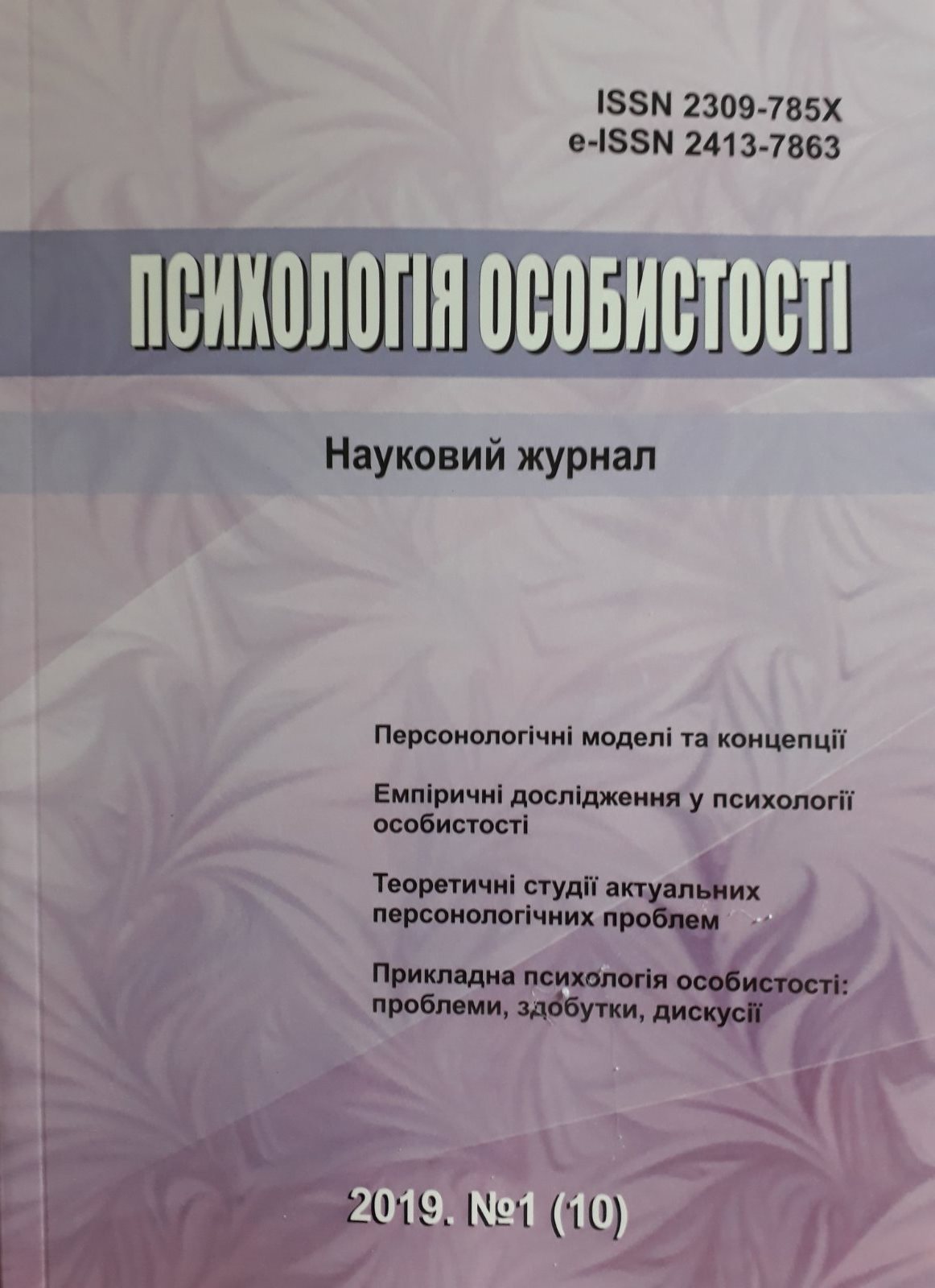METATHEORETICAL RECONSTRUCTION OF THE CANONIC PSYCHOLOGY SUBJECT FIELD
DOI:
https://doi.org/10.15330/ps.10.1.5-21Keywords:
: канонічна психологія, циклічно-вчинковий підхід, предметне поле, рефлексивне методологування, світ теоретичної психології, методологічне знання, метапозиціювання, метатеорія, канонізація теоретичних систем, психологічний канон, психософія вчинку, В. А. Роменець, П. А. М’ясоїд.Abstract
Science as a sphere of cognitive creativity and spiritual production of rational knowledge is based on the spacious connection of original rules, norms, canons (from gr. kanon – rule) which have been produced and tested by the heirs of mankind for centuries. The proposed methodological research is devoted to the analytical restoration and reflexive substantiation of the subject field of canonic psychology as one of the top creative achievements of the prominent Ukrainian psychologist-thinker of the second half of the XX century Academician Volodymyr Andriyovych Romenets (1926–1998). The novelty of this epistemic progress relates to several aspects of the constructive solution to this problem. Firstly, canonic psychology is considered as a post-action integration result of the development of three basic theoretical sources or disciplines – the history of world psychology, general psychology, and numerous psychological theories of some psychic event-phenomena (installations, attitude, unconscious, experience, game, personality, etc.), that is, it removes at the metatheoretical level (denies and at the same time saves in a transformed image) their content in more capacious, synthetic, compressed form. Secondly, due to the complexity of the problem covered, is chosen a multimodal tool, adequate for the way of how to solve it – a cyclic-action approach, the methodological optics of which contains four principles, six regularities and a number of derivative standards for the deployment of reflective thought-activity. Thirdly, the four main segments of the subjectivation of canonic psychology are subjected to analysis: as a philosophic-psychological direction for the development of modern human studies, as a scientific outlook «transition from the XX to the XXI century in psychological thought», as a metasystem of fundamental (basic to the foundations and the essence of human being) psychological knowledge, as the main course of the development of theoretical psychology by intellectual and semantic means of its self-reflection. Fourthly, canonic psychology, focusing on the study and construction of model phenomena and events of human life, gains cultural significance as a kind of worldview posture or meta-position of the vision and comprehension of the psychic. Therefore, it is concluded that this academic direction has a multi-aspect, multi-segment subject that integrally contained into the subject field of theoretical psychology. It, as a complex philosophic-psychological metatheoretical construction, encompasses «all the prominent theories that arose in the historic-psychological discourse», giving them a true sense of cognition, evidenced by an action event. Finally, a four-level structural-functional cycle of any logically mature psychological canon is outlined, which makes clear the tendency-procedure of canonization of psychic phenomena and enriches the theoretical world of canonic psychology. It is proved that a well-grounded in the creative experience of inspired cognition for V. A. Roments, versatile and quite sufficient in its capabilities, a benchmark or even a worldview is the psychosophy of act as a methodology for the study of the sources, essence and canons-models of human existence, as actual – responsibly deed – interpenetration of psychology and philosophy of wisdom, after all, as a universal algorithm and methodological scheme of human daily progress to a fully component act, to a detailed, personally inspired and impregnated with a labile mind, teaching.

